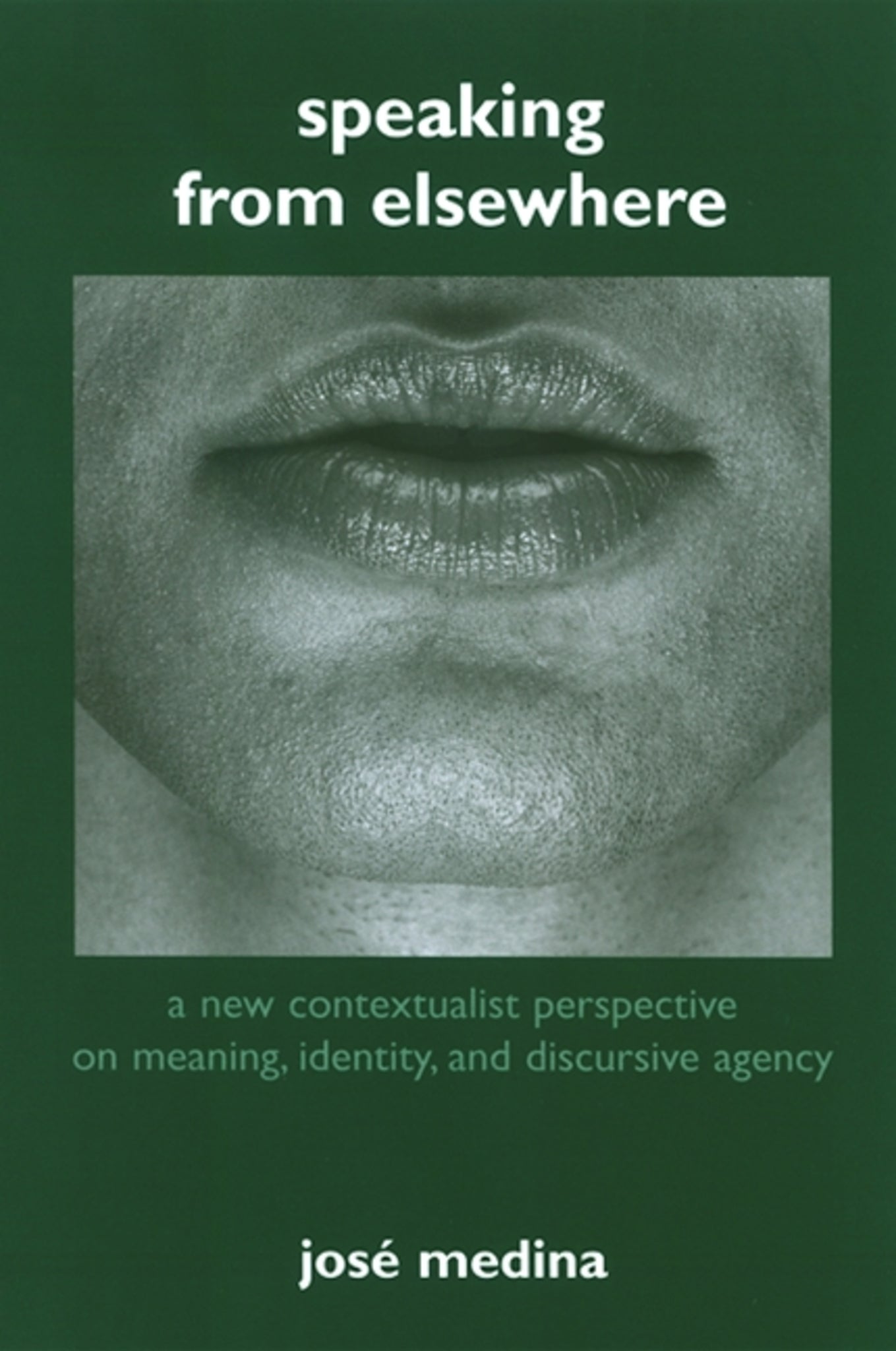We're sorry. An error has occurred
Please cancel or retry.
Speaking from Elsewhere

Some error occured while loading the Quick View. Please close the Quick View and try reloading the page.
Couldn't load pickup availability
- Format:
-
05 October 2006

Develops a contextualist view of identity, agency, and discursive practices.
In Speaking from Elsewhere, author JoseΠMedina argues for the critical and transformative power of speech from marginalized locations by articulating a contextualist view of meaning, identity, and agency. This contextualism draws from different philosophical traditions (Wittgenstein, pragmatism, and feminist theory) and crosses disciplinary boundaries (philosophy, cultural studies, women's studies, and sociology) to underscore both the diversity of voices and viewpoints and the openness of discursive contexts and practices. Expressing a robust notion of discursive responsibility, Medina contends that, as speakers and members of linguistic communities, we cannot elude the obligation to open up discursive spaces for new voices and to facilitate new dialogues that break silences and empower marginalized voices.


Acknowledgments
Introduction
1. Contextualizing Meaning
2. Contextualizing Identity
1.1 The Indeterminacy of Meaning: "Unnatural Doubts" and "Theoretical Diagnosis"
1.2 Wittgenstein as a Theoretical Diagnostician: Overcoming the Temptations of Reification and Decontextualization
1.3 Contextual Determinacy: Wittgenstein and Dewey on Meaning and Agreement
1.4 Meaning in Context: Semantic Stability and Semantic Change
1.5 Sustaining Agreement in Action: Normalcy and Eccentricity
1.6 A View from Elsewhere
3. Contextualizing Agency
2.1 The Hegelian Connection: Identity, Difference, and Polyphony
2.1.a The Dialectics of Recognition
2.1.b To Be and Not to Be: This Mess Called My Identity
2.2 The Flourishing of Voices and Their Domestication
4. Speaking from Elsewhere: Silence, Exclusion, and Marginality
3.1 Fighting Philosophical Myths about Discursive Agency
3.2 On Having a Voice: Uncontrollability, Polyphony, and a Hybrid View of Agency and Responsibility
3.3 The Scandal of Our Agency: Agency without Sovereignty and the Possibility of Transgression
Notes
4.1 Contextualism and the Hermeneutics of Silence
4.2 Making Sense of Radical Silences and Exclusions: A Polyphonic Perspective
4.3 Spaces of Intelligibility and Marginality
4.4 Speaking from the Margins
References
Index



